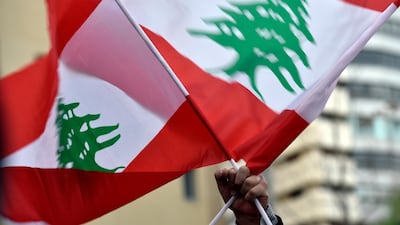Two things can be said about the efforts of Hezbollah and its allies in the Amal Movement and the Free Patriotic Movement (FPM) to push through a Lebanese government that would protect their interests, under the premiership of Hassan Diab.
First, they apparently succeeded in imposing Mr Diab on a large part of the protest movement that had been in the streets since October 17. And second, while the protesters may have taken a wait-and-see approach, Mr Diab does not enjoy support among his Sunni community. Having been named by several of the political parties associated with Lebanon’s economic mismanagement, he will struggle to implement the structural reforms needed for the country to emerge from its financial crisis.
While Mr Diab began forming his government last Saturday, the signs are that he would like to lead a government mainly of experts, even if named by the political parties. While this will not satisfy the demand of the protest movement for a government of independent technocrats, for now it could buy the parties in power time to breathe. With the economic situation deteriorating, people are inclined to give Mr Diab a chance.
The Lebanese have few alternatives. The political crisis that started last October had dragged on for more than two months when Mr Diab was named. In the interim, the economy had come to a standstill as banks, in order to survive, imposed unofficial capital controls while severely reducing the amount of money people could withdraw from their accounts. The outcome was that many businesses, unable to operate effectively, laid off workers, provoking a rise in unemployment at the worst conceivable time.
What Mr Diab intends and what will happen are two different things. Both Hezbollah and Amal indicated this week that they wanted more overt political participation in the government. Nabih Berri, the parliament speaker and Amal leader, would like to see all political parties in government, including those that have refused to join it. Evidently, the protest movement’s demands simply did not register with the speaker.
Mr Diab’s designation had come as domestic and international pressure built up to form a government. What delayed matters is that the former prime minister Saad Hariri had sought to corner Hezbollah and its allies by showing them that they could not avoid naming him to head a new government. This he sought to use as leverage to bring in a team of technocrats of his choosing, without major political figures.
His efforts led to a standoff, particularly between Mr Hariri and the head of the FPM, Gebran Bassil, one of the politicians most hated by the protest movement. Mr Hariri wanted to keep both Mr Bassil and major Hezbollah figures out of the cabinet, while Hezbollah and the FPM underlined that if they were outside, Mr Hariri would have to join them. They wanted a government of both politicians and technocrats.
Mr Hariri’s hardball tactics almost worked when Hezbollah showed a willingness to allow him to form a government, without setting as a condition that Mr Bassil needed to be in it. This led to tensions between the party and the FPM, opening the way to Mr Hariri’s designation as prime minister. The process collapsed, however, when a key Christian ally of Mr Hariri, the Lebanese Forces, refused to endorse him. Without Christian cover, Mr Hariri withdrew from the race, leaving Hezbollah hanging.
Hezbollah was no less keen than other parties to see a government in place. While the party has claimed it can weather an economic collapse – and doubtless it is more able to do so than others – a devaluation of the Lebanese pound would affect the Shia community at large, not just Hezbollah’s partisans. The ensuing discontent could represent a major problem for the party, all the more so as there is a significant Shiite component in the protest movement. So agreeing to a new government was a priority.
Whether Mr Diab is the silver bullet Hezbollah needs is questionable. His lack of communal backing will plague him in the months ahead, particularly when the government has to take tough economic measures heightening popular anger. Nor is it clear how his government will be able to move ahead on reforms that will entail undermining the political and economic interests of the very politicians who brought him to office and will appoint many of his ministers.
For example, one essential aspect of any reform package is to lay off thousands of superfluous workers from the civil service, placed there by the parties in power. Another is to lift subsidies on electricity and renovate the electricity sector, whose dysfunctional and corrupt nature has provided major sources of income for the parties. Will Mr Diab be able to make major progress here? Don’t hold your breath.
More likely, his government will try to progress where and when it can, compensating by putting an undue burden on society through taxes and other fees. Yet the protest movement showed the limits of that approach. What will happen then is that market realities will impose change on government policy, perhaps even bring intervention by the International Monetary Fund. This will mean even more pain and then we will see if Mr Diab can retain his post. The reality is that he was probably not brought in to last.
Michael Young is editor of Diwan, the blog of the Carnegie Middle East programme, in Beirut


